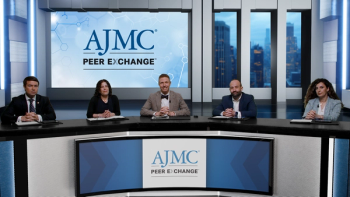
Panelists expressed cautious optimism about high-risk acute myeloid leukemia (AML) treatment, emphasizing the need for ongoing research, personalized therapy based on molecular profiling, and strengthened collaboration between community and academic centers to improve patient outcomes, while recognizing that education and sharing best practices are key to advancing targeted therapies and achieving long-term cures.



